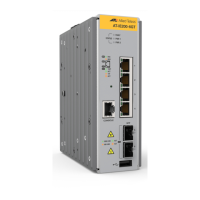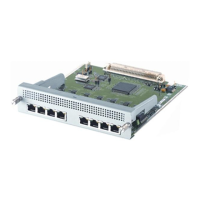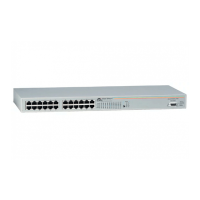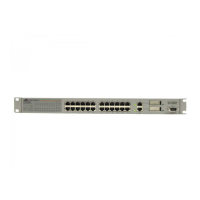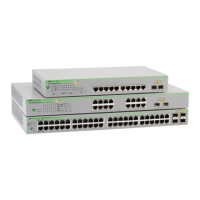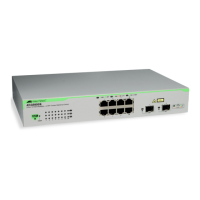C613-50631-01 Rev A Command Reference for IE340 Series 1530
AlliedWare Plus™ Operating System - Version 5.5.3-0.x
BGP AND BGP4+ COMMANDS
ROUTE
-MAP
route-map
Overview Use this command to configure a route map entry, and to specify whether the
device will process or discard matching routes and BGP update messages.
The device uses a name to identify the route map, and a sequence number to
identify each entry in the route map.
The route-map command puts you into route-map configuration mode. In this
mode, you can use the following:
• one or more of the match commands to create match clauses. These specify
what routes or update messages match the entry.
• one or more of the set commands to create set clauses. These change the
attributes of matching routes or update messages.
Use the no variant of this command to delete a route map or to delete an entry
from a route map.
Syntax
route-map <mapname> {deny|permit} <seq>
no route-map <mapname>
no route-map <mapname> {deny|permit} <seq>
Mode Global Configuration
Usage notes Route maps allow you to control and modify routing information by filtering
routes and setting route attributes. You can apply route maps when the device:
• processes BGP update messages that it has received from a peer
• prepares BGP update messages to send to peers
• redistributes routes from one routing protocol into another
• redistributes static routes into routing protocols
• uses BGP route flap dampening
When a routing protocol passes a route or update message through a route map,
it checks the entries in order of their sequence numbers, starting with the lowest
numbered entry.
Parameter Description
<mapname> A name to identify the route map.
deny The route map causes a routing process to discard matching routes
or BGP update messages.
permit The route map causes a routing process to use matching routes or
BGP update messages.
<seq> <1-65535> The sequence number of the entry. You can use this
parameter to control the order of entries in this route map.

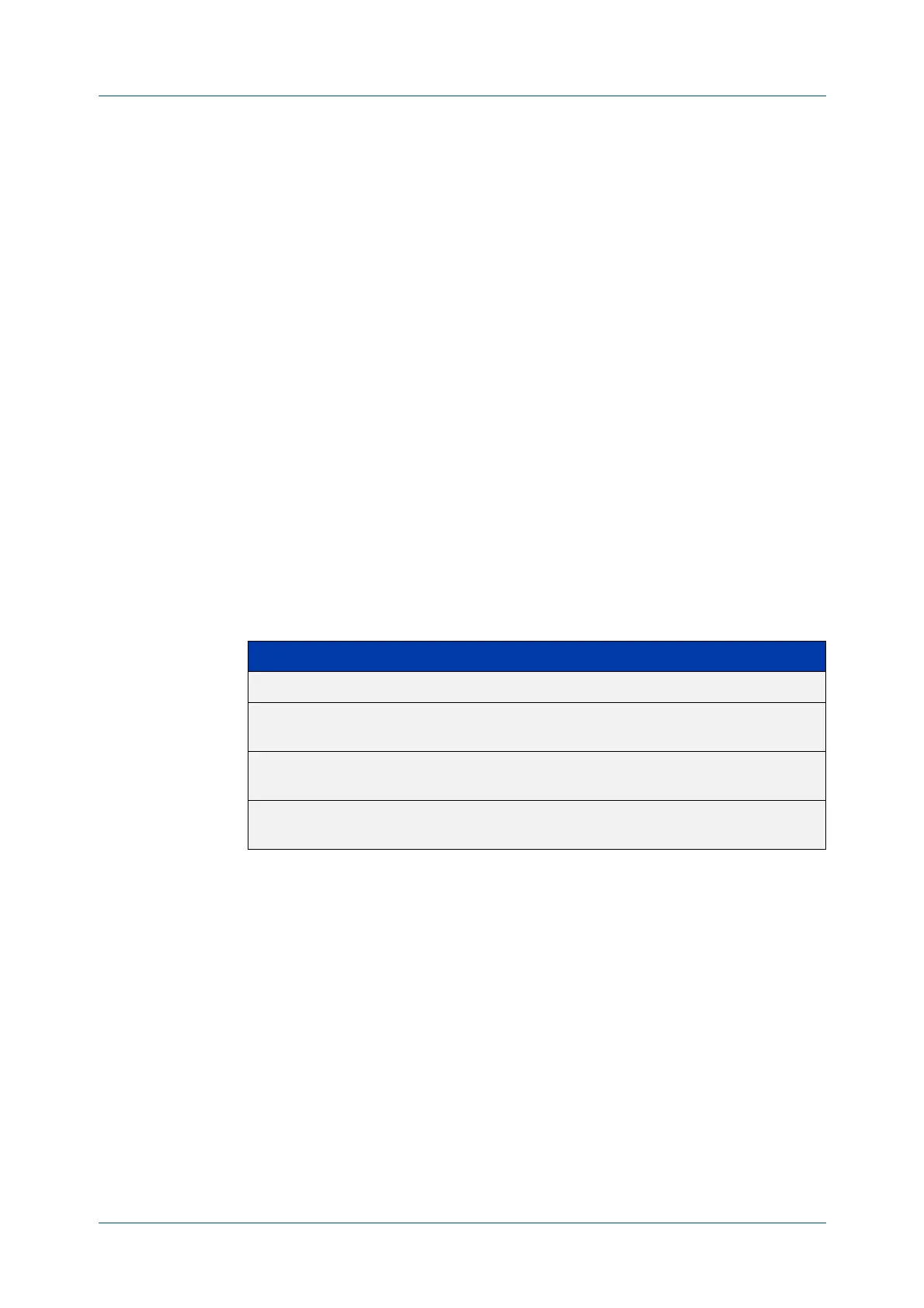